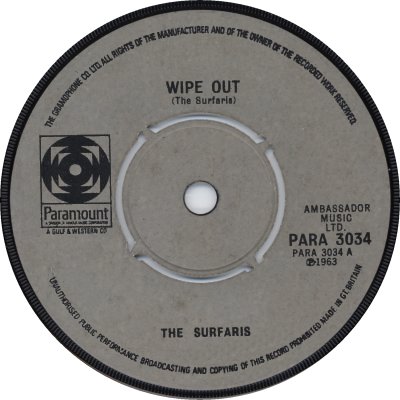
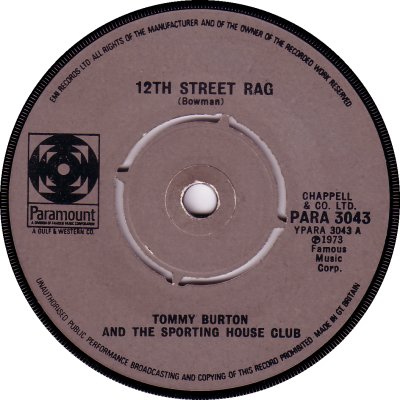
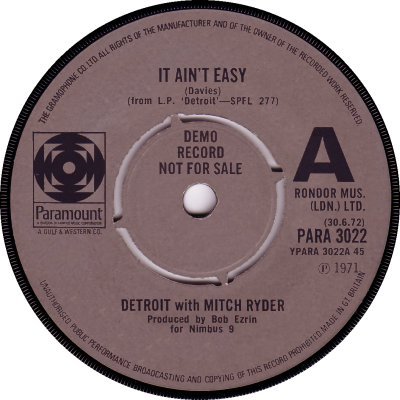
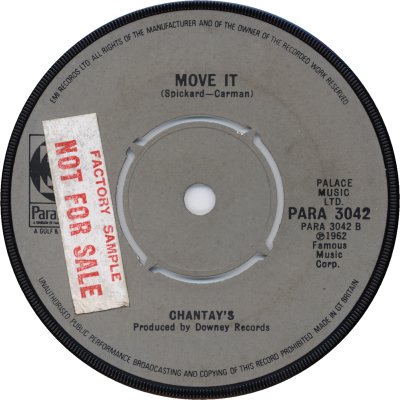
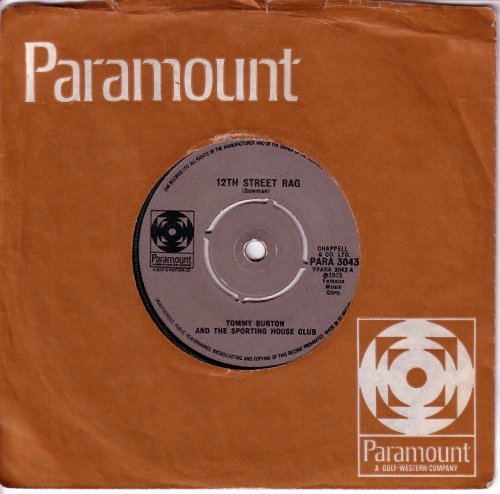
American. By order of the U.S. Government, the Paramount Pictures Corporation was split into two parts in 1950. One part, United Paramount Theatres, went its own way and eventually fathered the ABC Record Company (q.v.); the other, Paramount Pictures, satisfied its vinyl ambitions by purchasing Dot Records in 1958, only to be snapped up itself in 1968 by Gulf + Western. The Paramount label as such was formed in 1969, mainly to handle the soundtracks from Paramount films, when Dot lurched in the direction of Country music. It was sold to ABC in August 1974, along with the rest of G+W's record division, and was promptly discontinued.
As far as Britain is concerned, Paramount received its first mention in 'Record Retailer' of the 1st of January 1969, which stated that Paramount Pictures was launching the label here and in the USA the following month. 'RR' of the 15th of January added that Paramount's music division had agreed a licensing deal with EMI. There seems to have been a minor delay, as 'RR' of the 5th of March reported that the launch was now expected to take place in April. The first releases duly appeared, and the company enjoyed an early and unexpected success when Lee Marvin's, 'Wandrin' Star' backed with Clint Eastwood's rendering of 'I Talk To The Trees' (PARA-3004; 1/70) got to the top of the Singles Chart in 1970. Sadly, that was to be Paramount's only hit. Its mentions in 'RR' from then on were restricted to occasional details of licensing deals: 'RR' of the 31st of January 1970 said that it had been licensed to EMI till the end of the year, while 'RR' of the 4th of July extended that deal 'for a further period'. It was to stay with EMI throughout its existence. After the sale to ABC the Paramount label was dropped; B. J. Thomas was transferred to the ABC label, while Paramount's other artists at the time - there don't seem to have been many of them - found homes elsewhere. The final single, 'After Loving You' b/w 'Check Out Your Heart' by Linda Clifford (PARA-3051; 8/74) came out a week or so before the sale; presumably as a result there aren't many copies about, and it's quite sought-after in Soul circles.
Paramount's material was American in the main, though the occasional UK recording appeared; Tommy Burton's version of '12th Street Rag' b/w 'Limehouse Blues' (PARA-3043; 9/73) was a case in point. Numbering of its singles was in the PARA-3000s; manufacture and distribution were by EMI, which handled all the Gulf + Western companies. The label design remained basically unchanged throughout; there was an alteration to the perimeter text in October 1973 when the reference to 'The Gramophone Co.' at 8 o'clock (1) changed to 'EMI Records' (2) - a similar change took place on most of the other EMI group labels at or around the same time. Records affected were PARA-3042 onwards. Promos were marked in the standard EMI fashion of the time (3). As an aside, according to Billboard (9th March 1974) a new label called Paramount / Ember was supposed to have been agreed upon in a venture between those two companies, but while it did actually appear as a label in the USA its products ended up on the common-or-garden Ember label in Britain, with just a production credit to the new concern. The records released on Ember under the deal were Susan Maughan's 'Time' (EMBS-331; 8/74), 'You'll Never Know' by Denny Doherty (EMBS-332; 8/74), and 'Tonight' by Mother Trucker (EMBS-333; 9/74).
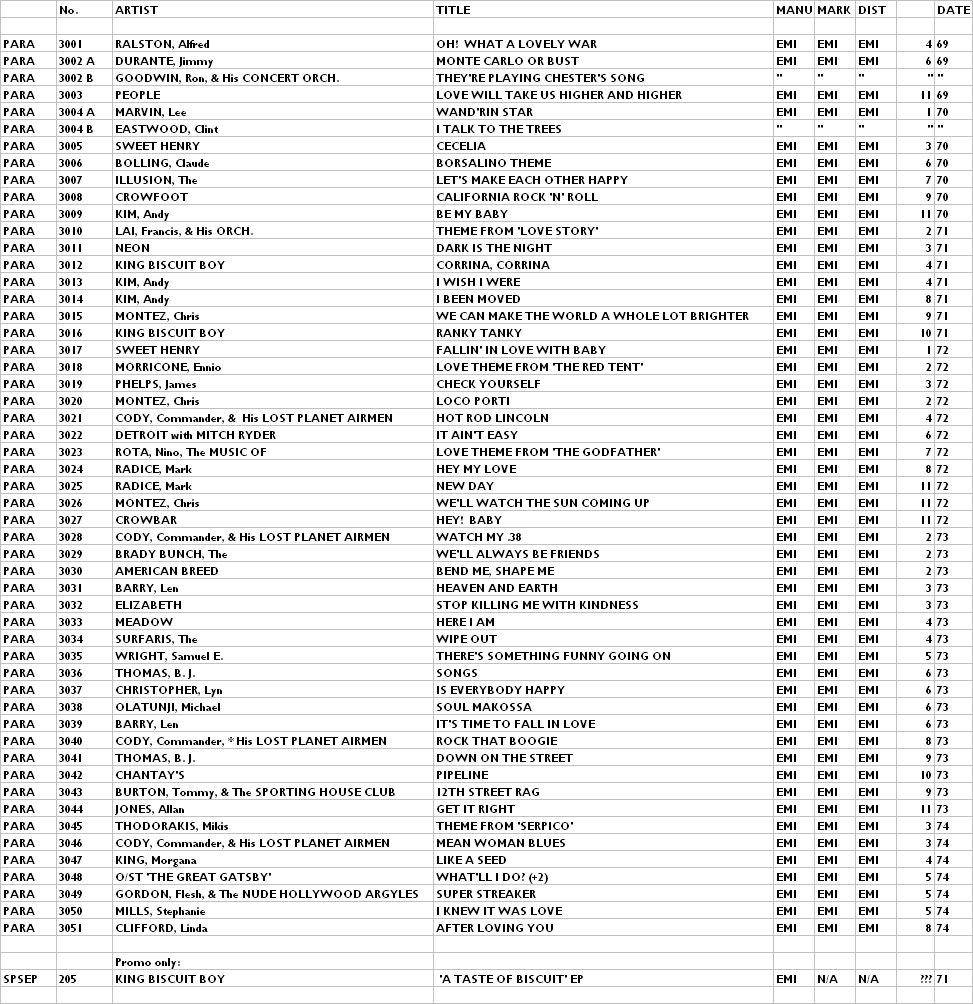


Copyright 2006 Robert Lyons.

